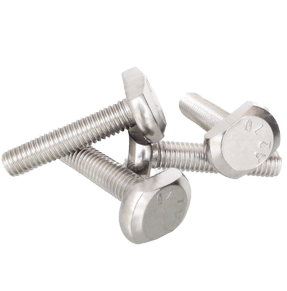

stainless flat washers
Sep . 26, 2024 03:35 Back to list
stainless flat washers
Understanding Stainless Flat Washers The Unsung Heroes of Fastening
In the world of mechanical engineering and construction, stainless flat washers are often overlooked, yet they play an integral role in ensuring the durability and reliability of various assemblies. Their simple design and functionality make them essential components in a myriad of applications, from automotive to aerospace, and even in everyday household items.
What is a Stainless Flat Washer?
A stainless flat washer is a disc-shaped piece of metal with a hole in the center, designed to be placed under the head of a fastener or nut. While it may seem inconspicuous, its purpose is significant to distribute the load of a fastener, prevent damage to the surface being fastened, and provide a smooth surface for the fastener to bear upon. When made from stainless steel, these washers offer enhanced corrosion resistance, making them ideal for challenging environments where moisture and chemicals are present.
Types of Stainless Flat Washers
There are several types of stainless steel flat washers, categorized primarily by their material composition and finishes. The most common types are
1. AISI 304 Stainless Steel Washers This is a versatile and commonly used type, known for its excellent corrosion resistance and good mechanical properties. It is suitable for most general-purpose applications.
2. AISI 316 Stainless Steel Washers Providing even better corrosion resistance, AISI 316 is ideal for marine applications and environments with exposure to saltwater, chemicals, or high temperatures.
3. Finish Options Stainless washers can come in various finishes, including polished, beaded, or plain. The choice of finish not only affects aesthetic appeal but also influences the washer's resistance to corrosion and wear over time.
Applications of Stainless Flat Washers
stainless flat washers

The applications for stainless flat washers are vast and varied
. In the automotive industry, they are used to secure bolts and nuts in engines, suspensions, and body assemblies. In construction, they are utilized in conjunction with bolts and anchors to secure structures and stabilizations.In the plumbing industry, stainless flat washers help create watertight seals, while in electronics, they assist in providing support and stability to circuit boards and other components. Even in marine applications, these washers are vital for securing fittings and preventing undue stress on connections in boats and ships.
Benefits of Using Stainless Flat Washers
1. Corrosion Resistance The primary advantage of stainless flat washers lies in their ability to resist rust and corrosion. This capability not only extends the lifespan of the washers themselves but also improves the longevity of the assemblies they secure.
2. Load Distribution Washers help spread the load over a larger surface area, reducing the risk of damage to the material being fastened. This is especially important in soft materials, where direct pressure from a fastener could lead to deformation or failure.
3. Vibration Damping In applications where vibration is present, washers can help absorb some of the energy, reducing the chances of loosening or damage over time.
4. Cost-Effectiveness Despite their essential function, stainless flat washers are relatively inexpensive, making them a cost-effective solution for enhancing the durability and effectiveness of mechanical connections.
Conclusion
In summary, stainless flat washers are a small yet essential component in countless applications across various industries. Their ability to prevent corrosion, distribute loads, and improve the longevity of fastened connections makes them invaluable to engineers and builders alike. As the demand for durable, reliable components continues to grow, understanding and utilizing stainless flat washers will become increasingly crucial—a testament to the importance of even the simplest elements in our complex engineered world.
Latest news
-
High-Strength Hot Dip Galvanized Bolts - Hebei Longze | Corrosion Resistance, Customization
NewsJul.30,2025
-
Hot Dip Galvanized Bolts-Hebei Longze|Corrosion Resistance&High Strength
NewsJul.30,2025
-
High-Strength Hot-Dip Galvanized Bolts-Hebei Longze|Corrosion Resistance&High Strength
NewsJul.30,2025
-
Hot Dip Galvanized Bolts-Hebei Longze|Corrosion Resistance&High Strength
NewsJul.30,2025
-
Hot Dip Galvanized Bolts - Hebei Longze | Corrosion Resistance, High Strength
NewsJul.30,2025
-
High-Strength Hot Dip Galvanized Bolts-Hebei Longze|Corrosion Resistance, Grade 8.8
NewsJul.30,2025

